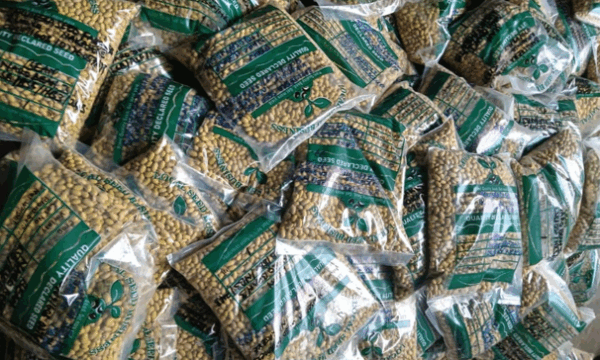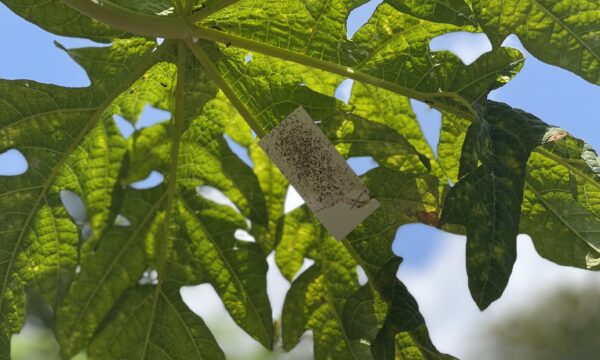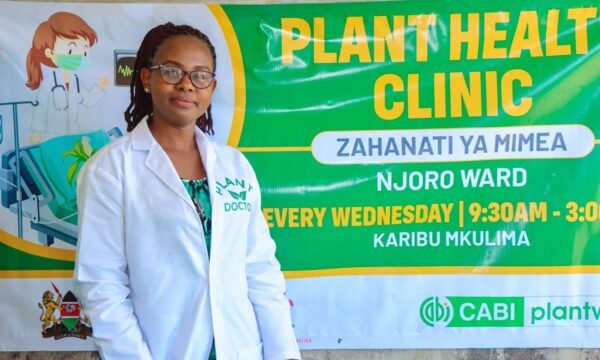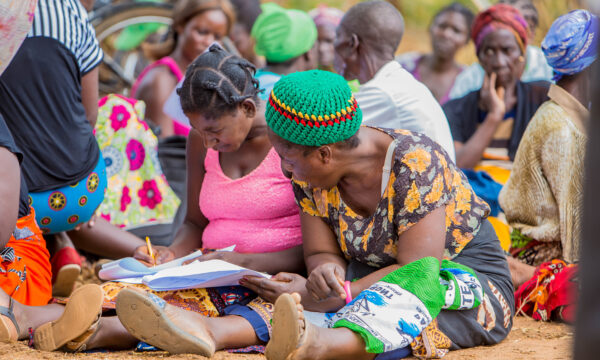Expanding Kenya’s horticultural produce markets by making production standards work for the country’s producers
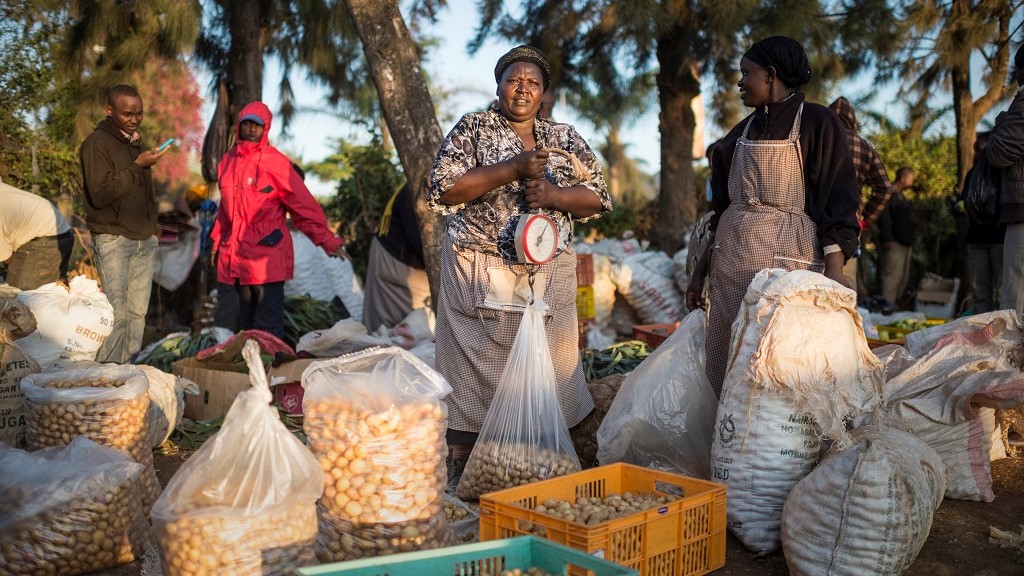
At the end of March, CABI participated in the GLOBAL G.A.P Tour held in Nairobi. The event sought to strengthen compliance and expand markets for Kenya’s agricultural produce. Convened by Rootooba, the tour raised awareness on updated global food safety standards.
Bringing together industry players from the export market including government agencies, non-governmental organizations, farmer associations, input dealers, finance institutions and private sector. Attendees focused on easing access to international markets in the wake of a changing agricultural landscape.
Key speakers noted that there has been a 14% decline in Kenya’s horticultural export revenue for the past year. This is due to climate change, which exacerbates pest and disease proliferation. Plus, the high cost of doing business. The sector additionally faces more stringent requirements compelling it to reduce the amount of plant protection products applied. All whilst ensuring that the produce is free from harmful organisms.
Harry Kimtai, the Principal Secretary, State Department for Livestock, Ministry of Agriculture & Livestock Development in Kenya, stated, “Production standards demanded by buyers is evolving; the focus has been on food safety and social accountability but is now extending to include environment and sustainable production.”

How do we make production standards work without increasing burden on producers?
It is necessary to address this pertinent question.
In a session that deliberated on this inquiry, the cost of training, certification and recertification were cited as major constraints to implementation of production standards. Emphasizing the need to synergize KS1758 standard with GLOBAL GAP for fair trade and affordability to ease the burden of compliance.
KS1758 is a Horticultural Code of practice which specifies the legal compliance, responsible procurement of inputs, safe production, handling and marketing of horticultural produce. This code targets all players in the industry including growers, propagators, plant breeders, seed merchants, consolidators, transporters, traders, shippers and cargo handlers.
PlantwisePlus promoting the demand for safer food
The two-day conference was thus strategic to CABI, who have been instrumental in assisting Kenyan horticultural producers to meet the KS1758 standard. Through its global programme, PlantwisePlus, that seeks to increase supply of and demand for safer food in local markets.
In collaboration with Fresh Produce Consortium, the programme has trained implementors in post-harvest handling,workers safety, pesticide use, plant nutrition, traceability, and record keeping. CABI seeks to collaborate further with the standard implementation committee (SIC) to train trainers, create awareness of the standard and develop interpretation guides on the standard for smallholder farmers. The training is scheduled to take place in May.
Further, the conference gave CABI participants an opportunity to network with stakeholders in the horticulture industry. And to meet and share with Twiga Foods, a company that sources produce directly from farmers and delivers it to urban retailers. CABI is in discussion for a possible collaboration to assist farmer groups working with Twiga Foods to achieve production standards.
Policy and plant clinics supporting sustainable horticultural production
The plenary sessions also highlighted glaring gaps in the traceability and monitoring compliance of horticultural produce in local markets. And they recommended implementing a policy framework for Maximum Residue Levels (MRLs) testing for domestic markets. CABI wishes to engage policymakers and relevant stakeholders to put in place measures to guarantee food safety for local consumers. A policy brief has been developed and will be used to engage decision makers on critical actions requiring urgent attention.
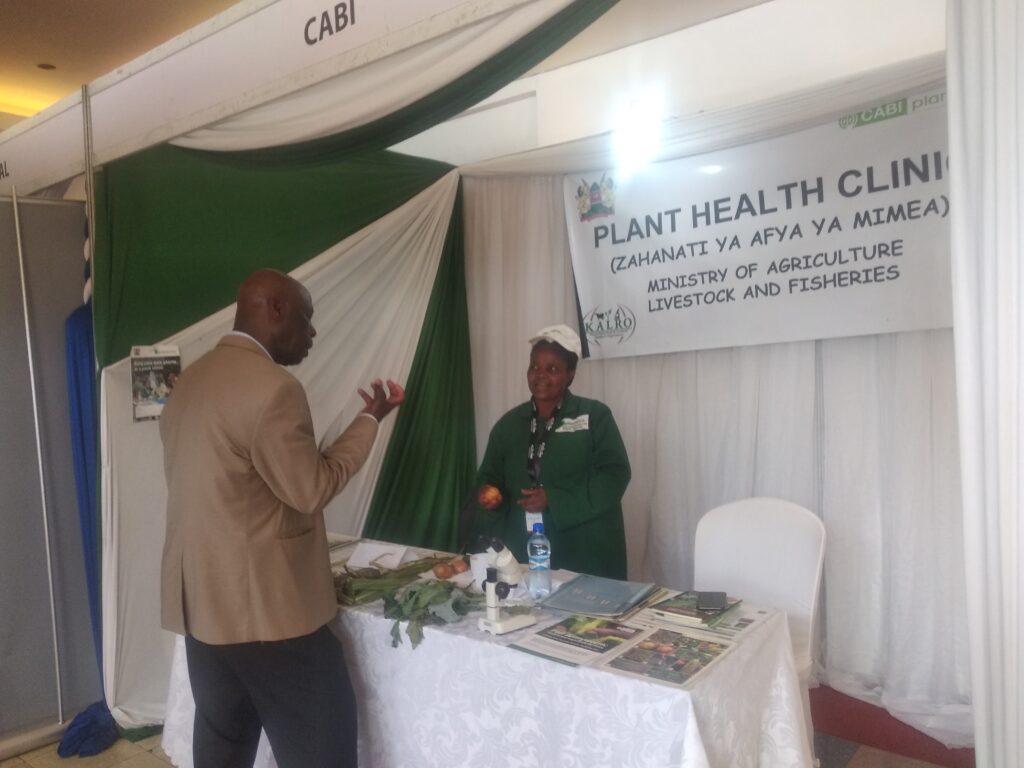
Additionally, plant doctors gave a live demonstration of the Plantwise plant clinic concept in the exhibition booth. The demo highlighted how the approach enables farmers to tackle plant health problems by receiving proper diagnosis and actionable recommendations. Ultimately, significantly reducing crop losses to pests and diseases.
Global trends are changing. Farmers and other actors must be increasingly flexible and dynamic in responding to diverse markets. Through the collective effort of the private sector, county governments, and the government it is possible to secure competitive markets through sustainable horticultural production.
Find out more
PlantwisePlus training helps Kenya meet KS1758 food safety standard
PlantwisePlus: Helping farmers grow safer, higher quality food
Related News & Blogs
How plant clinics are strengthening crop health services in Bangladesh
When the first-ever plant clinic in Bangladesh opened in Dhaka in 2013, it initially faced a lack of interest due to its novelty and limited awareness among farmers. However, it went on to expand, providing advice to over 17,000 farmers and led to the…
2 July 2025

